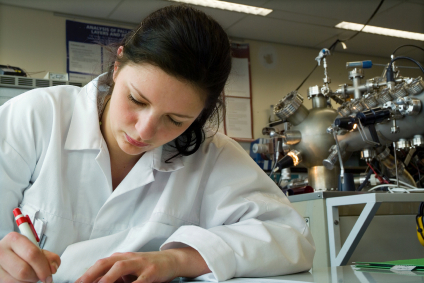Senior statistician
I have worked in several companies, each has given me different experiences, allowed me to work in different therapeutic areas and clinical trial phases.
 |
So, what do you do?
I’m a Senior Statistician within the pharmaceutical industry, working for a contract research organisation. I’m part of a small department of statisticians who provide statistical services for early phase clinical trials. We work with many different clients from big pharmaceutical companies to small biotech/academic clients.
How has your career developed since you entered the industry?
I started out as a Graduate Statistician in a big pharmaceutical company and have worked at several companies since then. Each has given me different experiences, allowed me to work in different therapeutic areas and clinical trial phases. I’ve also worked in teams based across sites, countries and time zones!
Why did you decide on a career in the pharmaceutical industry?
I had the opportunity to do a year working in industry as part of my undergraduate degree and my placement was in a biotech company working in their Statistics and Programming department. At the time I had no idea where to go career wise, but by the time I finished my placement I knew that this was a job for me.
What qualifications and experience did you have when you entered the industry?
When I entered the industry I had a BSc in Mathematics from Coventry University, an MSc in Medical Statistics from the University of Leicester and a year of experience in the industry from my undergraduate placement. I have A levels in maths, economics and theatre studies.
Do you think additional qualifications or experience would be an advantage for someone entering the industry now? What might be valuable?
I think an appropriate MSc is key to having the appropriate level of statistical knowledge when starting out in the industry. Work experience such as a year in industry is by no means essential, but can definitely be valuable and provide a good feel for what the day to day job will be like.
What does your typical day involve?
I don’t think there’s any such thing as a typical day. In a small department, you’re involved in almost every project so the work is very varied. I could be inputting into or reviewing study protocols and analysis plans, carrying out statistical analysis or providing statistical consultancy for a client. I’m also involved in reviewing study timelines, resourcing and bidding for new work/clients.
Do you work mostly on your own or as part of team?
Mostly I work as part of a team made up of people from different functions such as programming, data management, project managers and clinicians. Working in early phase trials means I also work closely with my PK (pharmacokinetic) colleagues.
What is it like socially where you work?
The company I work for is very friendly and welcoming. There are social events and activities that you can get involved in too. I’ve found this has been the case in every company I’ve worked for in the industry.
What are you most proud of in your career?
I’ve had lots of moments that I think I can be proud of. In the past, reporting out high profile studies and presenting results at senior-level meetings and my first published paper are ones that come to mind. In my current role, winning work where I’ve had input into the bid or attended a client bid meeting always feels good.
What possibilities are there for your career in the future?
Working within a smaller department means I have responsibilities that I wouldn’t necessarily have in a larger company, so I feel my job gives me a lot of developmental opportunities. Going forward from where I currently am in my career there’s the possibility of moving towards management or a more technical senior role.
What do you think are the most important skills for someone in your role to have?
As well as a good base of technical skills (statistical knowledge, SAS programming), good communication and time management skills are essential. Working for a contract research organisation means I can be working on a number of projects in different therapeutic areas and different teams at any one time. The ability to stay organised in the midst of this is essential.
What one piece of advice would you give to someone seeking a career in the pharmaceutical industry?
I think in this career it’s important to realise that you need a good balance of technical knowledge and communication skills. Being able to effectively communicate what you’re working on to someone without statistical background will form a large part of any statistical career in the pharmaceutical industry and so it’s a good skill to develop as early as possible.
Case study
Biostatistics Manager
 I often have many different activities ongoing at the same time and need to be really organised in order stay on top of them all.
I often have many different activities ongoing at the same time and need to be really organised in order stay on top of them all.
